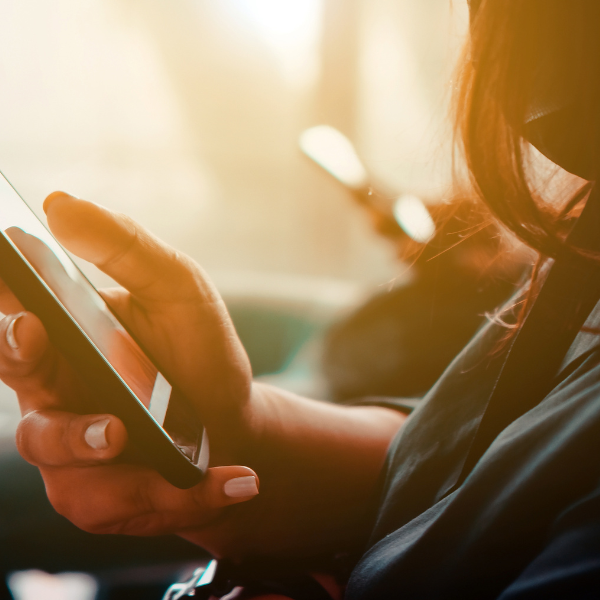
In today’s world, it is more important than ever to stay productive and organized. With technology advancing rapidly, smartphones can now be a great resource to help you stay organized and productive.
Smartphones are powerful tools that help you work smarter and more efficiently. A well-utilized smartphone can make all the difference in how quickly and accurately you complete tasks and achieve success.
Let’s explore the ways your phone can boost your productivity in the office and beyond:
Use Alarms
Did you know you can set alarms to remind you to do tasks? Once set, they’ll remind you of what you need to do and when. You can also use them as a reminder to take breaks. Taking breaks can help you be more productive by clearing your mind.
You can also use alarms on your smartphone to establish a time interval for completing a particular task. Be judicious with the number of alarms you set, and make sure they don’t become a distraction.
Use Your Smartphone as a List-Making Tool
Smartphones have revolutionized the way people do things, and one of their most useful applications is for productivity. An often-overlooked feature of smartphones is their ability to make and store lists. With list-making apps, you can easily keep track of tasks, shopping items, and to-do lists, ensuring nothing falls through the cracks.
For example, you can use a list-making app to plan out your day and week. By writing down the day’s tasks. You can then prioritize the list and have a clear view of what the upcoming day or week holds. Additionally, list-making apps allow you to easily set reminders and notifications, ensuring you stay on track.
Use Apps to Prioritize Tasks
There are many task-management apps out there, including free ones like Notion and Google Keep. You can add tasks, set reminders for their completion, and even share lists with others who need to stay on top of things (like clients or coworkers).
You can use apps in a similar way. Some allow you to create notes with individual due dates and reminders so that nothing slips through the cracks. Some, like Evernote, will sync your information across all your devices.
Organize Information
Organizing your smartphone’s information into folders and sub-folders is an easy way to keep track of everything. You can also use tags to sort through the data on your phone.
If you’re worried about losing important files, use cloud storage services like iCloud or Google Drive. These will allow you to save files in the cloud and access them from anywhere so that even if something happens to your physical phone, all the information stored on it won’t disappear forever.
Last but not least, file managers are useful tools if you’re looking for more advanced organizational abilities. They allow users to organize files in multiple ways by type (documents, photos), size (smallest first), date modified (newest first), and even color-code them for easier identification when browsing through folders full of documents.
Take Notes on the Go
Taking notes on the go can be a challenge, but there are several tools that will give you an edge. One of the easiest ways to take notes on your phone is to use a note-taking app. There are many options available for both iOS and Android users, regardless of what type of device you have or which operating system you prefer. These apps include Evernote, Google Keep, and Microsoft OneNote.
Download a Task Manager or Calendar App
It’s a good idea to download a task manager or calendar app, which will help you stay on top of your tasks and meetings. If your smartphone doesn’t come with one preinstalled on the home screen, there are plenty of free options available for download.
Here are some features to look for in either type of app:
Task management apps should allow you to create as many lists as possible, so you can organize things into different categories (work projects, personal errands, etc.). Some also allow you to set reminders, so you can remember what needs to be done at any given moment.
Calendar apps should let you sync your calendars with other devices like desktop computers or laptops, so you can access them anywhere you go–and there should be multiple options available depending on whether you prefer using Google Calendar or Microsoft Outlook (or something else). The more flexible these services are when syncing across devices and platforms, the better!
Record Yourself
You can also use dictation software, which allows you to talk into your phone instead of typing with your hands–a much faster process than typing each word individually.
Here’s another application: The next time you have an important meeting, record yourself. It’s a great way to catch errors in your speech, and it’ll also give you a chance to review what you said. Recording your voice also doesn’t take up much space on your smartphone.
You can use apps like Google Voice Typing or Dragon Dictation for Android phones, which allows users to dictate messages by speaking into the microphone and having them transcribed into text. You can also use services like Rev or TranscribeMe that will do the same thing but charge a fee per minute of recorded audio.
Conclusion
Hopefully, these tips offer insights to improve your productivity. Of course, there are many other ways to use a smartphone for work and, over time, you’ll discover more. But being productive doesn’t have to be complicated or time-consuming. It can be as easy as putting away distractions and focusing on the task at hand!

